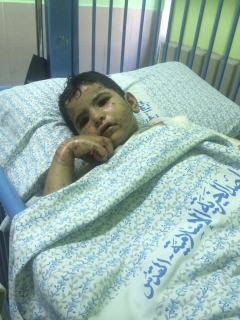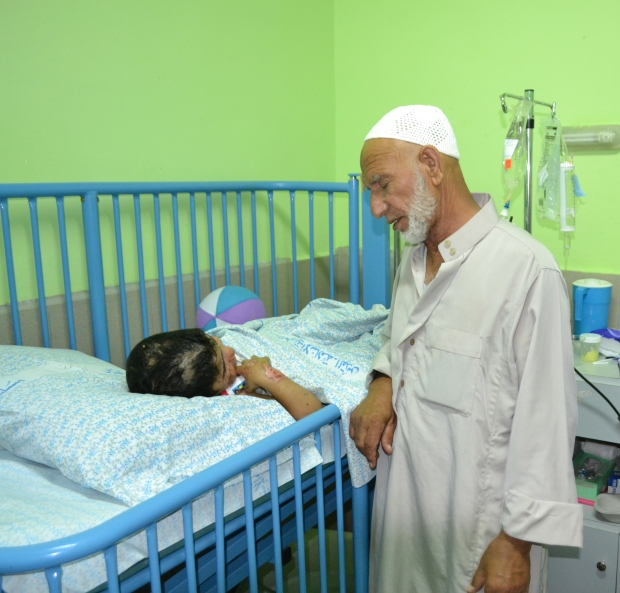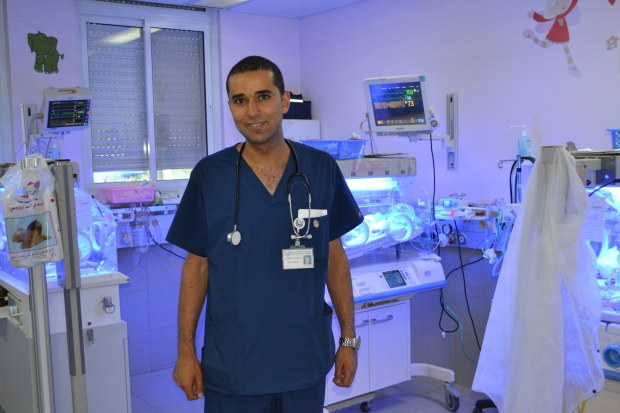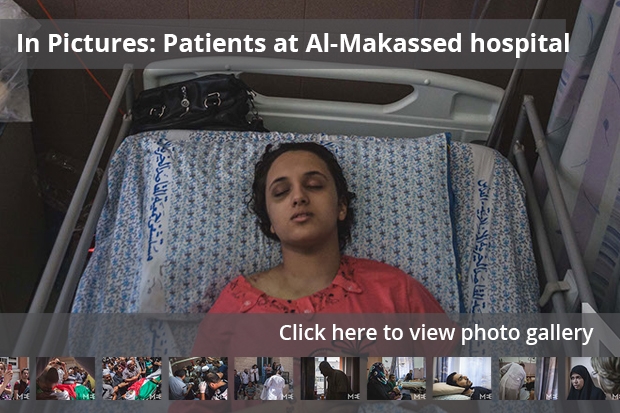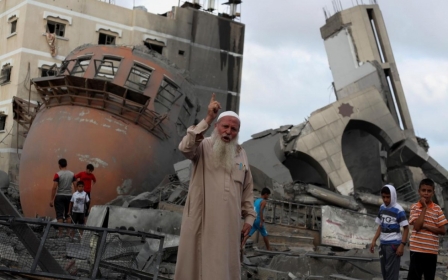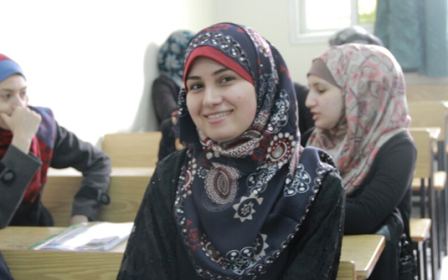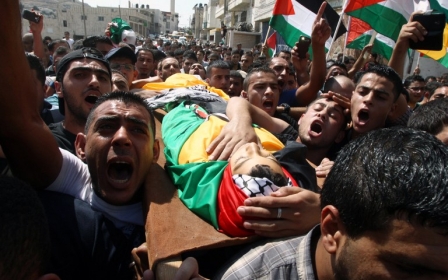Palestinian hospital faces uncertain future due to funding crisis
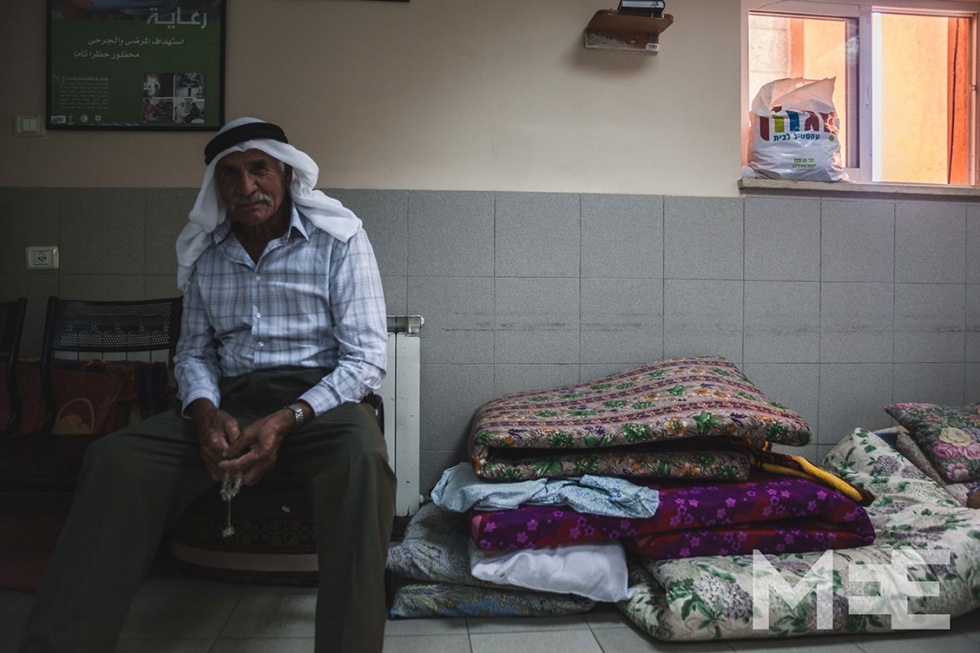
The future of Palestine’s only non-profit hospital hangs in the balance.
The Makassed Hospital in East Jerusalem has a funding shortfall of $5 mn and its 750 staff members haven’t been paid for more than four months.
Founded in 1968, the hospital provides high quality, free treatment for complicated medical cases among the Palestinian communities of Gaza and the West Bank. During the last month, however, the hospital has come under great strain as large numbers of patients have been transferred to its wards for treatment from Gaza.
Beds are filled with the burnt and broken bodies of children, accompanied by family members, who recall the horror of attacks by Israeli forces that have left their lives in tatters.
Among them is four-year-old Yamen. He arrived at the hospital on 3 August two days after being badly injured when Israeli forces bombed his home in Khuzaa in southern Gaza. Eighteen of his family members, including his mother, father and two sisters, were killed in the attack.
Covered in burns, Yamen is suffering from multiple fractures to his skull, left hand and left leg. He was accompanied to the hospital by his grandfather, who is the sole surviving member of his family.
Doctors at the hospital say Yamen will make a full physical recovery, but that he faces an unclear future because of the inevitable mental trauma of what has happened to him.
His eyes are constantly sodden with tears as he cries out for his dead mother and sister. He shivers with fear at night, telling his grandfather that he is scared there will be more bombs.
Streams of Palestinians from East Jerusalem come to the hospital every day, handing out presents to patients’ families and even offering to adopt the children who are there for treatment.
Yamen’s grandfather, however, insists that they must go back to Gaza.
“Yamen represents each of the 18 family members I have had to bury. We have to take him back to Gaza, he is our only hope for a better future. When we found out he had survived the attack our despair immediately turned to joy: he is our entire world now,” Yamen’s grandfather, who did not want to give his name, said.
Whether the hospital will be able to continue treating children like Yamen rests on securing the funding that is urgently needed to maintain its services.
Ten children arrive at the hospital from Gaza every day, costing on average 200,000 NIS ($57,350) and steadily pushing the hospital further and further into the red.
On top of the patients from Gaza, the hospital is dealing with more than 350 people injured in clashes between Palestinians and Israeli forces in East Jerusalem. There are also scores of cases coming in from the West Bank, where critically injured protesters require complex and long-term care for wounds sustained during clashes with Israeli soldiers.
In 2013, the hospital admitted over 37,000 patients, operating at 95 percent capacity. Staff say that the number of patients has increased significantly this year, due to the upswing in unrest in the West Bank and as a result of Operation Protective Edge which began on 8 July.
The Palestinian Ministry of Health says nearly 10,000 people have been injured in Gaza since Israel launched its military assault last month, including more than 3,000 children. Hundreds of people have been injured in almost daily clashes between Israeli forces and Palestinian protesters in the West Bank.
At Makassed hospital there may not be enough money to buy equipment or pay staff, but doctors say they will carry on working as long as they are physically able.
“We haven’t been paid for months but we cannot stop, who will take care of these children? They are our people. We work up to 17 hours a day, rarely taking a day off. Last week I worked 55 hours straight,” said Dr. Maher Shahrour, a paediatrician at the hospital.
“I don’t know if the hospital will get the money it needs but we will continue to fight for our people giving them the treatment they deserve. As a medical professional, this is how I can resist what Israel is doing to us Palestinians.”
The commitment of those who work in the hospital is self-evident, as is the support of the local community. Teams of volunteers swarm around the corridors day and night providing emotional support to families who sleep on mattresses spread out across the hospital’s waiting areas.
None of this, however, can replace the hospital’s practical needs. Money is needed to expand capacity and buy ventilators, while a plethora of surgical instruments and medicines are urgently required to maintain its everyday operations.
The Palestinian Authority say they do not have the $5 mn needed to support Makassed and the hospital has been left in limbo with no other options available to raise the shortfall in funds.
For children like four-year-old Yamen the hospital’s importance cannot be overstated. Staff members say if his transfer to their care had been delayed by two days he would have had an arm and leg amputated, or maybe even worse.
And while the unerring commitment of hospital staff has maintained high levels of treatment until now, if the money is not found soon there is a growing fear among the doctors that the only Palestinian-run source of free health care may have to shut its doors at a time when its services are needed the most.
Photo Credit: MEE / Andrea DiCenzo
New MEE newsletter: Jerusalem Dispatch
Sign up to get the latest insights and analysis on Israel-Palestine, alongside Turkey Unpacked and other MEE newsletters
Middle East Eye delivers independent and unrivalled coverage and analysis of the Middle East, North Africa and beyond. To learn more about republishing this content and the associated fees, please fill out this form. More about MEE can be found here.


